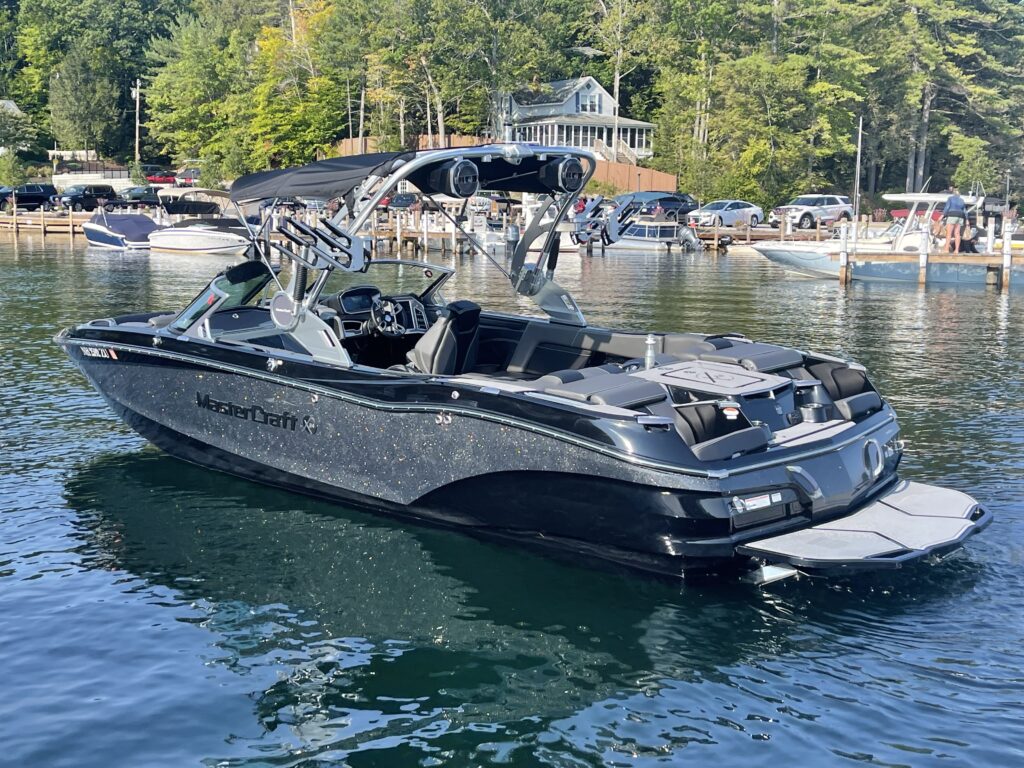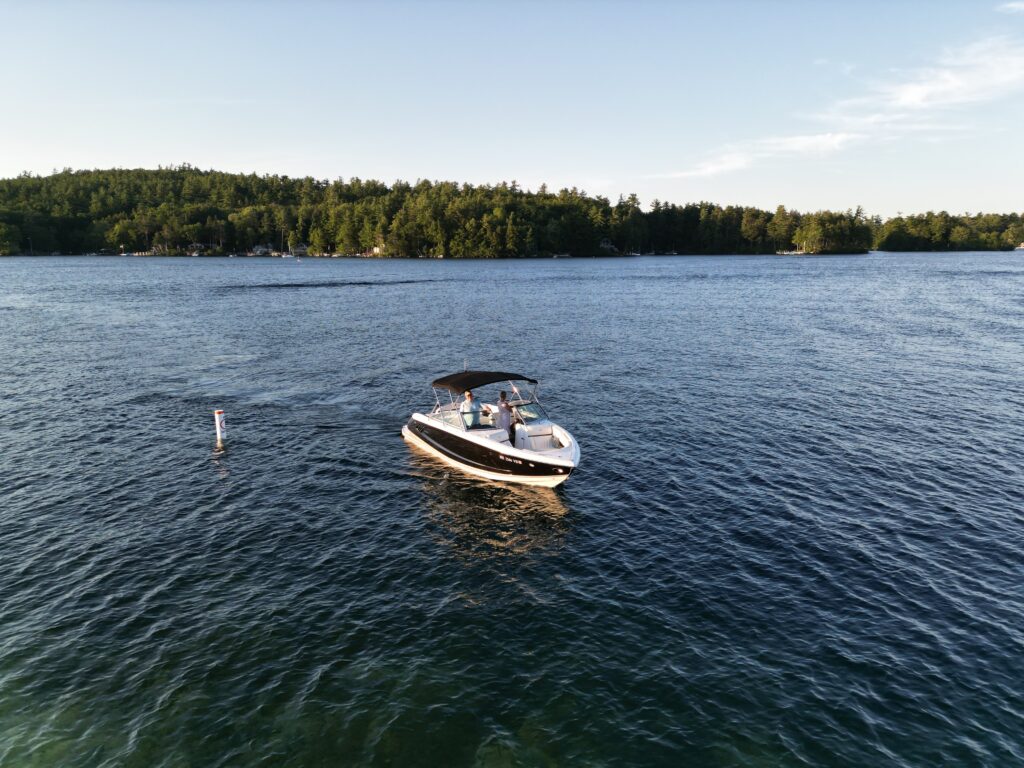Owning a boat is a dream for many, but the cost of purchasing one can be significant. For most buyers, securing a boat loan is the best way to finance their purchase and make boat ownership more accessible. However, many prospective buyers wonder how difficult it is to obtain a boat loan. The answer depends on several factors, including credit score, income, loan type, and lender requirements. This article explores the boat loan approval process, what lenders look for, and how to improve your chances of getting approved. Let’s go over how hard is it to get a boat loan.

Understanding Boat Loans
A boat loan functions similarly to an auto loan but with some key differences. Lenders view boats as luxury items, meaning that financing may come with stricter requirements compared to auto loans or mortgages. Boat loans typically come with longer repayment terms, ranging from 5 to 20 years, and can be either secured or unsecured, depending on the lender.
Types of Boat Loans
Secured Boat Loans
A secured boat loan uses the boat as collateral, meaning that if the borrower defaults, the lender has the right to repossess the boat. These loans generally come with lower interest rates and more favorable terms because they are considered lower-risk for lenders.
Unsecured Boat Loans
An unsecured loan does not require collateral, but it relies heavily on creditworthiness. Because these loans pose a higher risk to lenders, they often come with higher interest rates and shorter repayment terms.

Factors That Affect Boat Loan Approval
Credit Score and Credit History
One of the most critical factors in securing a boat loan is your credit score. Lenders use this score to assess the risk of lending to you.
- Excellent Credit (750+): Best interest rates and most favorable loan terms.
- Good Credit (700-749): Still qualifies for competitive rates but may have slightly higher interest.
- Fair Credit (650-699): Loan approval is possible, but interest rates will be higher.
- Poor Credit (Below 650): May require a larger down payment or a co-signer.
Debt-to-Income Ratio (DTI)
Lenders also look at your debt-to-income ratio (DTI), which measures how much of your monthly income goes toward paying off debts. A lower DTI (below 40%) increases your chances of loan approval, as it shows you have enough income to manage additional debt.
Down Payment Requirements
Most boat loans require a down payment ranging from 10% to 20% of the boat’s purchase price. A higher down payment can reduce the loan amount, lower interest rates, and improve approval chances. Some lenders may require a higher down payment for older boats or buyers with lower credit scores.
Employment and Income Verification
Lenders typically require proof of steady income to ensure you can repay the loan. They may ask for recent pay stubs, tax returns, or bank statements. Self-employed applicants may need to provide additional financial documents to verify income stability.
Boat Type and Age
The type, age, and condition of the boat can also impact loan approval. Newer boats are often easier to finance because they hold their value better than older boats. Some lenders may impose restrictions on financing used boats, especially if they are more than 10 to 15 years old.

How Long Does It Take to Get a Boat Loan?
The boat loan approval process can take anywhere from a few days to several weeks, depending on the lender and complexity of the loan. If all necessary documentation is provided upfront and the borrower has a strong financial profile, approval can be as quick as 24 to 48 hours. However, delays can occur if additional documentation or credit verification is required.
Steps to Getting Approved for a Boat Loan
1. Check Your Credit Score and Financial Health
Before applying for a loan, review your credit score and credit report. If your score is lower than desired, take steps to improve it by paying off debts and correcting any errors on your credit report.
2. Determine Your Budget
Calculate how much you can afford, considering the loan amount, down payment, interest rates, and additional costs such as insurance, maintenance, and marina fees.
3. Compare Lenders and Loan Offers
Not all lenders offer the same loan terms. Consider applying for financing through:
- Banks and Credit Unions – Often offer competitive rates, especially for borrowers with good credit.
- Marine Lenders – Specialize in boat financing and may offer better terms for certain boat types.
- Online Lenders – Provide quick approvals and flexible financing options.
4. Get Pre-Approved
Getting pre-approved allows you to shop for a boat with confidence, knowing how much you can borrow. Pre-approval also helps streamline the final loan application process.
5. Gather Required Documentation
Lenders typically require:
- Proof of income (pay stubs, tax returns, bank statements)
- Credit history report
- Personal identification
- Boat details (make, model, year, purchase price)
6. Finalize the Loan Agreement
Once approved, carefully review the loan terms, including interest rate, repayment schedule, and any fees before signing the agreement.

How Hard Is It To Get a Boat Loan Actually
The difficulty of getting a boat loan depends on your credit score, financial health, and the lender’s requirements. Borrowers with good to excellent credit and stable income typically find it easy to get approved for a boat loan with favorable terms. However, those with lower credit scores or high DTI ratios may face challenges and may need to make a larger down payment or seek a co-signer.
Common Challenges in Getting a Boat Loan
1. Poor Credit Score
Borrowers with credit scores below 650 may struggle to find financing or may face higher interest rates.
2. High Debt-to-Income Ratio
If your monthly debts are too high compared to your income, lenders may be hesitant to approve your loan.
3. Insufficient Down Payment
If you cannot provide at least 10% to 20% as a down payment, some lenders may not approve the loan.
4. Older Boat Models
Many lenders prefer financing boats that are less than 10-15 years old. If the boat is older, you may need to seek specialized marine lenders.

Can You Get a Boat Loan with Bad Credit?
Yes, it is possible to get a boat loan with bad credit, but expect higher interest rates and stricter loan terms. Improving your credit score before applying, increasing your down payment, or finding a co-signer can improve your chances of approval.
Float Finance: Simplifying Boat Loans
For those seeking affordable and flexible boat financing, Float Finance specializes in marine loans tailored to your needs. Whether you have excellent credit or need help securing financing with a lower score, Float Finance offers competitive loan options to help make boat ownership a reality.
- Competitive Interest Rates – Offering the best possible rates for qualified buyers.
- Flexible Loan Terms – Loan terms ranging from 5 to 20 years.
- Quick Approval Process – Get pre-approved within 24-48 hours.
- Financing for New and Used Boats – Funding available for a variety of boat models.

Conclusion
Getting a boat loan is not necessarily hard, but it depends on credit score, income stability, down payment, and boat type. Borrowers with strong financial profiles will have an easier time securing a loan with favorable terms, while those with lower credit scores may need to explore alternative financing options.
For buyers looking to finance their dream boat, Float Finance provides expert guidance and customized financing solutions to make the process smooth and stress-free. Whether you’re purchasing a new or pre-owned boat, Float Finance helps turn your boating dreams into reality.
